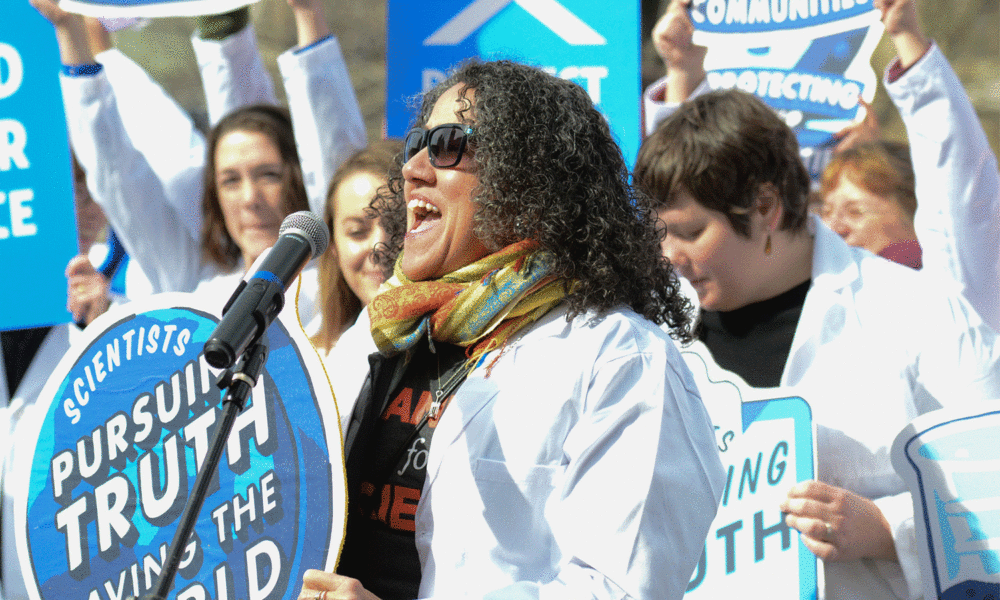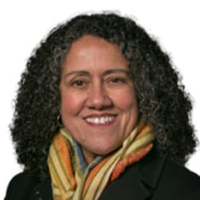I am a very social person. I like going out, meeting people, sharing meals with colleagues and friends, and most of all, getting to know people by talking about stuff we have in common and are passionate about.
I happen to be passionate about climate change. Well, I don’t love climate change itself (who would?)–rather, I love learning what is happening, what other scientists are saying, and what we can do about it. So yeah, I tend to talk about it a lot. I hope I am not the kind of person that arrives at a gathering and people go “oh no, here comes Astrid with her talk about climate change, ugh!” But interestingly, what I find is that people actually ask me about it more than I volunteer information about it.
All kinds of people
I can be at a bicycle ride (I am passionate about cycling also), and people ask me about climate change. I can be at a party, or at the dentist, or at a pub (I am passionate about beer also). The questions just keep coming from all kinds of people. Is it real? Is it really because of us driving around too much? Is it because we use too much electricity? Can it be stopped? On and on the questions come, some insightful (is it reversible?), some practical (what can we do?), some depressing (will the world as we know it be no more? are we doomed?).
I try to answer them truthfully and empathetically. Yes, climate change is real, humans are the major cause, and it is happening right now. Yes, we can do something about it, maybe slow it down, maybe stop it. There are lots that can be done to avoid the worst of it. No, we are not doomed but the world can be pretty different from what we have known so far.
And yes, it is in a sense because of us driving around and using a lot of electricity. But it is not our fault, not really. It is because the systems and comforts that are part of our daily lives are for the most part, unfortunately, relying on fossil fuels. Coal, oil, and gas are the predominant fuels behind a lot of what we do, and as a consequence, we pump a lot of residue from our activities into the atmosphere–mainly, carbon dioxide or CO2, the main warming gas out there.
But I also always say, there are other, better options out there through which we can continue living our lives with very little actual change, without damaging the environment and changing our climate. I then talk about what can be done to reduce emissions, to adapt to impacts we cannot avoid, and about the power of people to effect change at various levels.
Bringing the science to where the people are

Because so many people want to learn about climate change, and because I like to talk to people, and because I am a good communicator, I am one of the voices for science inside UCS.
We receive lots of requests for speakers from a variety of people, groups, and organizations. You guessed it, many requests relate to climate: explainers about global warming and climate change; the state of the science; what is happening, has happened, and may yet happen; information about specific locations or impacts; and discussions of potential solutions to reduce or resist impacts.
Here is a short (and not comprehensive) list of the types of places and people I have spoken to about climate change (at their request):
- Students (high school, undergraduate, graduate)
- Postdocs;
- Scholars;
- Community groups and organizations;
- Faith-based groups and organizations;
- Historic societies;
- Indigenous communities;
- The military;
- Youth coalitions and advocacy groups;
- Non-profit organizations;
- Medical societies;
- Adult learning groups;
- Retirement homes;
- Rallies;
- Happy hours (!!);
- and of course radio and TV media shows, as well and online and printed media.
All because all kinds of people want to learn about climate change.
Learning from the people

When speaking to different audiences, I learn from them. Communication is a two-way street, and listening is as important–or more–than speaking. What I learn shapes my next speaking engagement, and not surprisingly, there are certain common themes that emerge from similar audiences.
When I speak to students in career panels, the questions usually revolve not around the science itself–most usually accept it and are more interested in impacts on their future lives, and how they can be active in creating a better future for themselves. What careers are likely to be in demand to save the planet?
When I speak to older audiences, such as retirement homes, the questions revolve a lot about how they can get involved in efforts that would benefit their community and future generations. They want to volunteer for a worthy cause. There is a palpable concern about what they will leave behind.
Faith-based organizations sometimes question the science in the face of God, and how they can be best compatible. Interestingly, on more than one occasion, after a very passionate back-and-forth, there was a conclusion (or tacit understanding) that God is in charge, and “God gave us science,” which is pretty darn awesome if you ask me. Of course, navigating the faith dogmas and beliefs is something not to be taken lightly, but by directly with faith communities, I have learned a lot from them and can use their insights to guide me.
So yes, different things and points resonate with different audiences, but as a general rule, across all audiences, there is the deep need to understand, and an almost eagerness to do something.
Taking it one step further: advocacy
Not only do I speak about climate science to all types of audiences, while doing that I am in fact advocating for science to be used in policymaking, in resilience building, and in pretty much everything that needs to be evidence-based and that at the same time is of direct interest for that audience, like sea level rise on the Eastern Shore of Maryland and Southern Louisiana or extreme heat in Arizona.
Back in 2016-2017 some controversy started about scientists being advocates–is it good, is it not? Do scientists lose credibility when they advocate for science or for a cause? Some scientists vocally said so. The clear answer is no. On the contrary, we need to put our voices out on the issues that most concern us, because who better to add their voice to a cause than someone who works with the issue?
I am also passionate about climate justice. I use my voice to bring awareness to climate injustices and disproportionate climate impacts on low-income and minority communities. I regularly travel to communities being directly and heavily impacted by sea level rise, extreme heat, and flooding. I engage with local leaders to bring them the scientific resources and extra capacity they need to further their resilience and adaptation goals, all the while learning a lot from them. Nobody is a better expert at a place than the local community.
So, go out there, talk about it, be loud, be passionate, be an ally and a partner, add your voice to the cries for justice, for the fight against climate change, for science- and evidence-based policies, and for a healthier environment for all! Happy Earth Day/Week!

